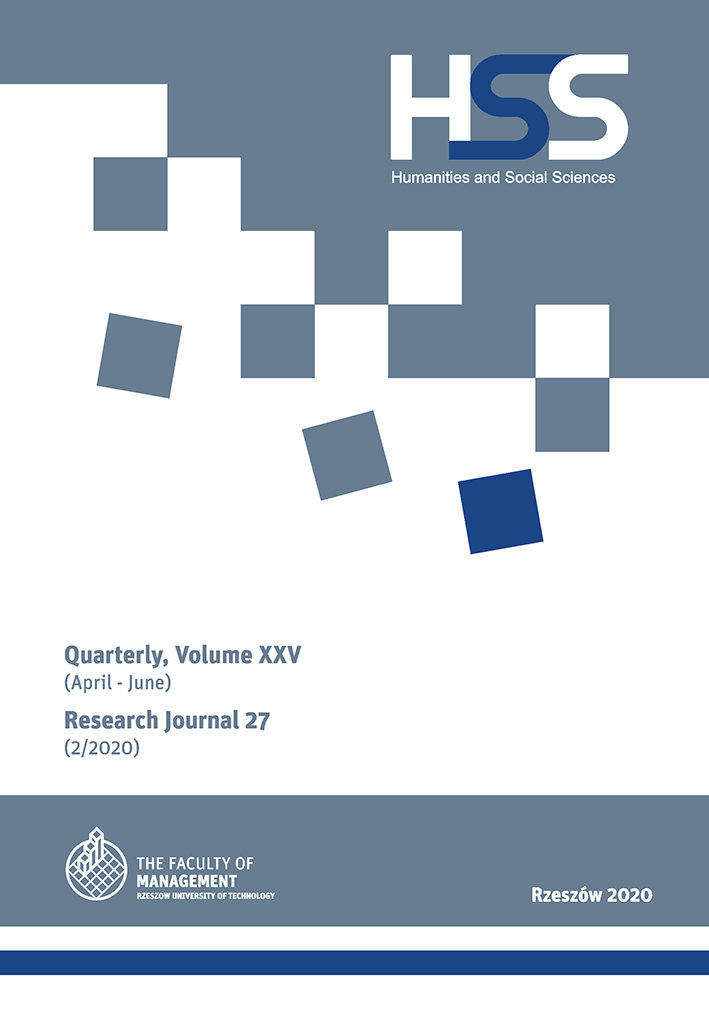Abstrakt
This research focused on family tourism and its influence on the current interest and participation of students in tourism and on the quality of their lives. The study examined the participants’ frequency and limitations on their involvement in family tourism. The results from the study were compared to the current level of tourism activity. The study compared the forms, types of tourism and methods of its organization. Qualitative research provides more precision in examining the results and this study concentrated on the perception of elements within family tourism involvement that improved life quality. The study collected data using the methods of diagnostic survey and structured in-depth interviews. In addition, the study utilized the non-parametric chi-square test and Spearman's rank correlation coefficient for statistical analysis. The study found that there was statistically significant dependence between travelling with parents in the past and the level and quality of current tourism activities of academic students.
Bibliografia
Bryman, A. (1992). Quantitative and qualitative research: further reflections on their integration [In:] Brannen, J., ed., Mixing methods: Qualitative and quantitative research. Aldershot: Avebury.
Charles, N., Davies, C.A., Harris, C.C. (2008). Families in transition: Social change, family formation and kin relationships. Bristol, United Kingdom: Policy Press.
Dann, G.M.S. (2001). Senior tourism and quality of life. “Annals of Tourism Research”, 28.
Delekta, A. (2013). Determinanty aktywności i destynacji turystycznych studentów dużego i małego ośrodka akademickiego. Kraków: Wydawnictwo Naukowe Uniwersytetu Pedagogicznego w Krakowie.
Delekta, A. (2014). Społeczne determinanty aktywności turystycznej studentów krakowskiego ośrodka akademickiego. „Humanities and Social Sciences”, Vol. XIX, nr 21 (4).
Delekta, A., Stecko, J. (2016). Social and economic conditions of tourism activity of students in Krakow. “Humanities and Social Sciences”, Vol. XXI, 23 (3/2016).
Delekta, A., Stecko, J. (2018). Family as a determinant of tourist activity of students of the University of Lviv. “Humanities and Social Sciences”, Vol. XXIII, 25 (4/2018).
Delekta A., Kurek, S., Mróz, F., Rettingier, R., Ziółkowska-Weiss, K., Żemła, M. (2018). Families with Children as Consumers on the Tourism Market – Research Challenges. “FoliaTuristica”, 48 (2018).
Diener, E., Suh, E. (1997). Measuring quality of life: Economic, social, and subjective indicators. “Social Indicators Research”, 40.
Flick, U. (2011). Jakość w badaniach naukowych. Warszawa: Wydawnictwo Naukowe PWN.
Frankfort-Nachmias, C., Nachmias, D. (2011). Metody badawcze w naukach społecznych. Poznań: Wydawnictwo Zysk i S-ka.
Gram, M. (2005). Family holidays: A qualitative analysisof family holiday experiences. “Scandinavian Journal of Hospitality and Tourism”, 5(1).
Gram, M. (2007). Children as co-decision makers in the family? The case of family holidays. “Young Consumers”, Vol. 8(1).
Harper, J.A. (1985). Together is better: A model for the development of a national family recreation program. “World Leisure and Recreation Association Journal”, 27.
Hill, S.A. (2011). Families: A social class perspective. Los Angeles, CA: Pine Forge Press.
Karnitis, E. (2006). Increasing quality of life as the goal for development of Latvia. “Applied Research in Quality of Life”, 1.
Khoo-Lattimore, C., Prayag, G., Cheah, B.L. (2015). Kids on board: Exploring the choice process and vacation needs of Asian parents with young children in resort hotels. „Journal of Hospitality Marketing and Management”, Vol. 24(5).
Kim S., Lehto, X.Y. (2013). Travel by families with children possessing disabilities: Motives and activities. “Tourism Management”, Vol. 37(1).
Kowalczyk-Anioł, J. (2007). Rozwój przestrzeni urlopowo-wakacyjnej rodzin studentów Uniwersytetu Łódzkiego, Monografia Naukowa Szlakami Nauki nr 34, Łódź: Łódzkie Towarzystwo Naukowe.
Kowalczyk-Anioł, J., Włodarczyk, B. (2011). Turystyka rodzinna – istota i zakres pojęcia [In:] Śledzińska, J., Włodarczyk, B., ed., Turystyka rodzinna a zachowania prospołeczne, Wydawnictwo PTTK „Kraj”.
Lehto, X.Y., Lin, Y., Chen, Y., Choi, S. (2012). Family Vacation Activities and Family Cohesion. “Journal of Travel & Tourism Marketing”, 29(8).
Neal, J.D., Sirgy, M.J.,Uysal, M. (2004). Measuring the effect of tourism services on travelers quality of life: Further validation. “Social Indicators Research”, 69.
Schänzel, H.A., Yeoman, I. (2015). Trends in family tourism. „Journal of Tourism Futures”, Vol. 1(2).
Schänzel, H.A., Yeoman, I. (2014). The future of family tourism. “Tourism Recreation Research”, Vol. 39(3).
Schänzel, H., Yeoman, I., Backer, E., ed. (2012). Family Tourism: Multidisciplinary Perspectives. “Channel View”. Bristol.
Shaw, S.M. (1992) Dereifying family leisure: An examination of women'sand men's everyday experiences and perceptions of family time. “Leisure Sciences”, 14(4).
Siegel, D.J., Bryson, T.P. (2020). The Power of Showing Up: How Parental Presence Shapes Who Our Kids Become and How Their Brains Get Wired. New York: Ballantine Books.
Silverstein, M., Parker, M. (2002). Leisure activities and quality of life among the oldest old in Sweden. “Research on Aging”, 24.
Winiarski, R., Zdebski, J. (2008). Psychologia turystyki. Warszawa: Wydawnictwa Akademickie i Profesjonalne.
Zabriskie, R., McCormick, B. (2001). The influences of family leisure patterns on perceptions of family functioning. “Family Relations”, 50(3).
American Express Company survey [access: 12.12.2019]. Access on the internet: https://about.americanexpress.com/press-release/


